
MARKET ANALYSIS OF OIL PRODUCTS

The oil and fat products market in Russia is developing steadily. Oil and fat enterprises occupy one of the leading positions in the country's agro-industrial complex, and domestic demand is fully satisfied. Active market saturation increases the level of food security and stabilizes food prices.
The production and processing of raw vegetable oil (sunflower, soybean, palm, rapeseed, flaxseed, mustard) increases annually, as does the share of refined products. The high level of self-sufficiency in the product allows us to sell the oil abroad.
The increase in output is facilitated by a significant increase in the yield of oilseeds, expansion of sown areas, and increased interest in Russian products from the exporting countries of Turkey, Iran, and China. Exported oils are used as food ingredients and raw materials for biofuels.
The demand for edible animal fats, used in the production of almost all types of meat and meat-containing products, is growing. The areas of use of fats for technical purposes are the production of soap, glycerin, lubricants, fatty acids, and biofuels.
The production of vegetable-cream and vegetable-fat spreads also shows a steady growth trend. Spreads and margarine are a cheaper alternative to butter, which is widely used in the production of confectionery and baked goods, sauces and snacks, and semi-finished products.
The production of oil and fat products involves a number of technological operations, during which semi-finished products are subjected to filtration to separate mechanical impurities. Enterprises strive to make their products as safe as possible in order to remain competitive in the market.
UVMILK filter range for fat and oil producers
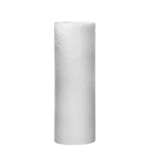
for phosphatide treatment
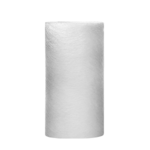
for wet heating method
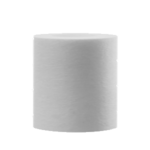
for dry components recovery
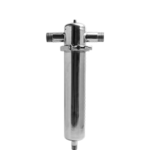
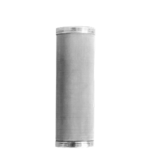
for clearing fuses
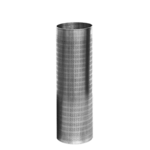
for cleaning from residues of animal raw materials
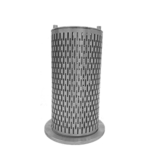
for purification of oil and fat raw materials
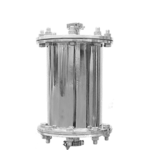
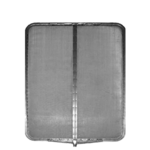
for primary cleaning
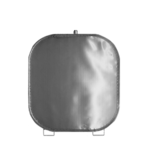
for winterization
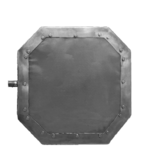
for bleaching and refining
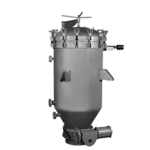
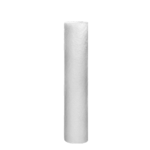
for reducing wax residues
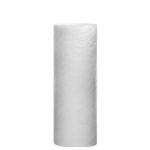
for sediment separation
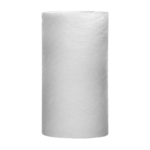
for reducing burnt marks
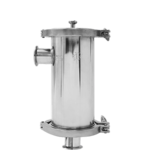
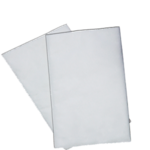
to eliminate protein
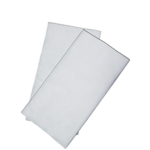
for police clearance
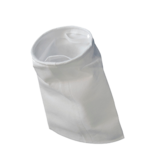
for catalyst removal
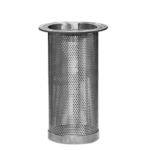
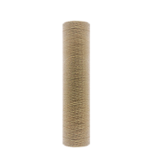
to clarify oil
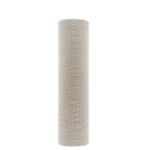
for separation of phospholipids
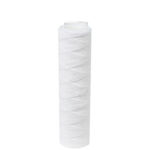
to normalize the mixture
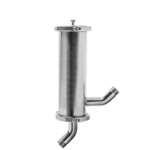
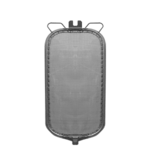
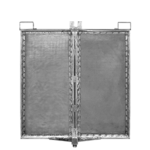
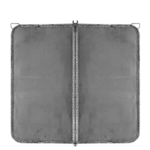

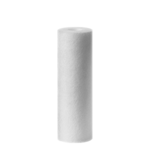
for detergents
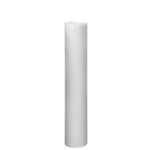
for disinfectants
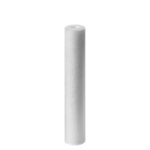
for CIP sinks
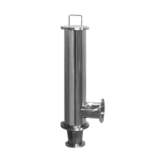
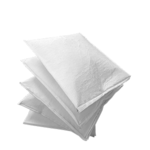
for collecting oil
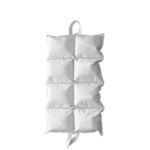
to clean up oil spills
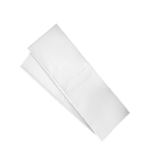
for oil sorption
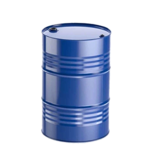
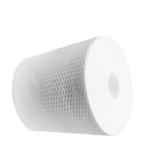
for cleaning hands from grease
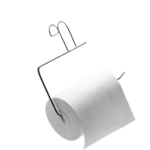
for flue boiler
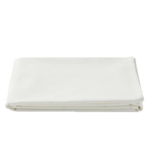
for degreasing equipment
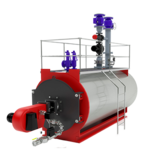
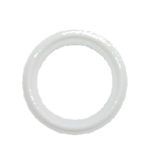
for bottom valve vertical pressure plate filter
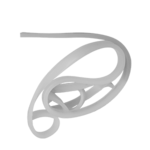
for the cover of a vertical pressure plate filter
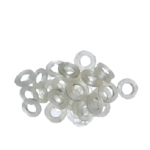
for oil plate fitting
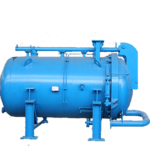

INSTALLATION LOCATIONS OF OIL FILTERS AT PRODUCTION PLANT


PRODUCTION OF VEGETABLE OILS
-
Refined oils
-
Unrefined oils
-
Palm oils

PROBLEMS OF VEGETABLE OILS PRODUCTION
- Fuel and raw material residues lead to rapid coking of the equipment, reducing the efficiency and production capacity of the line
- The smallest impurities and waxes cause the oil to become cloudy, reduce transparency and not conform to its presentation
- High cost and logistical difficulties when ordering imported filter plates for precoat filters
- Increased fragility and deformation of plates due to the use of mechanical and chemical cleaning methods
- Oil losses and frequent changes of the alluvial layer during multiple sludge unloadings, frequent equipment breakdowns
- Soot and scale particles in heat exchangers do not allow maintaining stable oil temperatures
BENEFITS FOR VEGETABLE OIL PRODUCERS
- Wide range of original and analog filter meshes due to our own production and repair
- Increased structural strength of filters and plates due to multi-layering and varying mesh thickness
- Guaranteed cleaning results thanks to varying micron sizes of filters and plates from 0,5 to 1000 microns
- The use of non-woven, needle-punched and stainless steel filter materials approved for contact with edible oils
- Tightness of precoat and cylindrical filters due to manufacturing in strict accordance with the drawings and wishes of the customer
- Safety and inertness of filter materials during repeated contact with aggressive food and washing liquids
BENEFITS FOR VEGETABLE OILS PRODUCERS
- Savings on the purchase and repair of equipment due to the production of filters and plates from Russian materials
- Effective filtration during bleaching and winterizing due to the use of twill and shell weaving meshes
- Full compatibility with foreign equipment due to precise adherence to dimensions during filter production
- Convenient logistics and fast delivery times thanks to the production and repair of wafers at our own production facility in the center of Russia
- Possibility of use on hot and cold oil due to the variability of filter structures for purifying oils of various viscosities
- Oils without turbidity and impurities during bottling thanks to durable and dense filter elements for police filtration
economic justification
The oil extraction plant produces 200 tons of vegetable sunflower oil per day. One precoat filter failed; it became clogged with fuses, the mesh ruptured, the profile deformed, and cracks formed on the frame. Due to line downtime, the plant does not produce 60 tons of oil daily. Losses from equipment downtime 0.75 € * 40 tons = 30000 € per day. Ordering a complete set of filter plates from abroad in the amount of 20 pieces will cost the plant 30000 €, and delivery will take about 3 months.
Repairing a set of plates will be much cheaper due to comprehensive repairs and restoration at the YUVMILK plant. The average cost of repairing 1 plate is 650 €. General repair calculation: 20 plates x 650 = 13000 €. Savings on repairs amount to 30000 - 13000 = 17000 €. Thus, repairing existing filter plates will cost more than 2 times less than purchasing new foreign ones. Repair within 1 month will significantly reduce line downtime.

client case
Given:
The oil extraction plant produces about 80 tons of oil per day. If cheap police filters rupture, impurities will enter the container, after which repeated filtration will be required, and the used bottles will have to be discarded.
Task:
Select filters with the micron rating required for final control filtration to eliminate random mechanical impurities from the oil, thereby protecting the line from breakdowns and downtime.
Solution:
Installation of a basket filter at the bottling of refined deodorized oil under a UVMILK bag filter element with a micron rating of 1 micron for police cleaning.
Result:
Thanks to police filtration, it was possible to protect bottled oil from accidental mechanical impurities, and therefore avoid repeated filtration and increased consumption of packaging containers.

FEEDBACK ABOUT THE USE OF UVOIL PRIMING PLATES
«When producing vegetable oil, we use a foreign-made precoat filter. We purchased this filter 8-9 years ago. Over the years of use, both alkali and mechanical cleaning methods have been used to clean the filter. Over time, a gap in the mesh appeared in several places, and the frames themselves began to wobble.
On the recommendation of friends from another plant, I contacted the UVMILK company. The manager offered me two options to solve the problem: making new plates or repairing existing ones. The repair was cheaper, so we ordered it. The mesh tension is better than before the repair. The grid was chosen completely identical. Now we are going to order additional plates for another case we have.»
Oil extraction plant, Mordovia


PRODUCTION OF ANIMAL FATS
-
Edible fats
-
Technical fats
-
Fish oils

PROBLEMS OF ANIMAL FAT PRODUCTION
- Large amounts of connective tissue, hair, scales, bones and debris in raw materials intended for processing
- The cracklings, burnt marks, and clots formed during remelting change the consistency, aroma and color of the output product
- Chemical processing and purification methods reduce the content of nutrients in edible animal fats
- When interacting with oxygen, the process of fat oxidation is accelerated and the shelf life of products is reduced
- High energy consumption during rendering and refining of edible and non-edible animal fats reduces production profitability
- A large amount of mechanical impurities in raw materials requires frequent stops of separators to unload sludge
ADVANTAGES FOR ANIMAL FAT PRODUCTION
- The increased resource and volume of filters allows you to continuously purify large volumes of food and technical animal fats
- Filter materials approved for contact with food do not affect the chemical composition of fats
- Minimal filter resistance does not require additional energy consumption on production lines
- A wide range of filter life and micron size, allowing you to choose a comprehensive cascade solution for cleaning
- The tightness of the filter equipment eliminates the possibility of contact with air and oxidation of the product
- Long service life of housings with the possibility of variable micron rating of filter elements
BENEFITS FOR ANIMAL FAT PRODUCERS
- Increased overall profitability of the enterprise due to the processing of raw materials of animal origin and reducing the share of waste for disposal
- High product quality thanks to careful processing and mechanical removal of animal residues
- Certified filtration equipment that meets current health codes and industry standards
- Increasing the energy efficiency of the enterprise through filtration that does not require additional energy consumption
- Optimization of filtration costs thanks to the low cost of replaceable cartridges capable of purifying fats for technical and food purposes
- Individual selection of filtration solutions for any stage of processing from extraction to refining of animal fats
economic justification
The company purchases raw fat for processing and melts chicken, pork, and beef fat with a total volume of up to 20 tons per day. The fat is removed from mechanics and greaves using a decanter, but the quality of cleaning is not satisfactory; suspended particles and small impurities remain in the fat. Fats of this quality are sold at an average price of 0.7 € per kilogram. With deeper purification, the fat corresponds to the highest grade and is sold at a price of 1.1 € per kilogram. If the entire daily volume of fat contains impurities, then the lost profit will be 8000 € daily.
Using the UVMILK Strainer for cleaning fats allows you to remove all unwanted inclusions up to 250 microns in size, thereby reducing the load and the number of decanter unloads. Additionally, after the decanter, a UVMILK bag filter is installed on the line. to remove the smallest debris. By investing 2700 € at a time on a set of housings and filter elements, you will be able to clean the produced animal fats from foreign matter, significantly improving the quality of the product. Filter payback period: 1 day

client case
Given:
The company daily produces 2 tons of fish oils of food and veterinary quality containing Omega-3 fatty acids up to 40%. When processing fish, the raw materials contain crushed fibers and scales.
Task:
Carry out deep cleaning of the resulting fats from all mechanical impurities to ensure the required color, transparency and attractive presentation of the finished product.
Solution:
Installation of a UVMILK filter with a cleaning fineness of 5 microns and a UVMILK bag filter with a cleaning fineness of 1 micron for final police cleaning before bottling into cubes and barrels.
Result:
Thanks to the sequential installation of filters with different micron sizes, it was possible to establish the production of a purified product for further sale for food purposes and the production of dietary supplements and animal feed.

REVIEW ON THE USE OF UVMILK FILTERS FOR FATS
«The group of companies includes a meat processing plant, a slaughterhouse and a meat and bone meal production plant. For several years we have been establishing the production of animal fats, which we render from offal. After rendering in digesters, the fat is contaminated with bone meal. They tried to clean the melted fat with homemade filters, but the result was not satisfactory. Previously, we could sell such fat only at low prices.
A specialist from the YUVMILK company offered to supply their filters. To be honest, we had doubts, so we sent cans of grease to the plant in Voronezh so that they could select a filter for us. Based on the results, we were offered a cascade filtration system consisting of 10 and 1 micron filters. After a trial run of the filters in our production, we were convinced of the purity of the fat at the exit. In addition, the purified fat became lighter, the shade changed from greenish to lighter, closer to yellow.»
Group of companies, Republic of Khakassia


PRODUCTION of spreads and margarines
-
Margarines
-
Spreads
-
Salomasy

PROBLEMS IN THE PRODUCTION OF SPREADS AND MARGARINES
- Low quality of incoming vegetable and animal fat due to foreign impurities, which are detected only at the melting stage
- Low quality of incoming vegetable and animal fat due to foreign impurities, which are detected only at the melting stage
- Heterogeneous consistency of the oil and fat emulsion due to lumps of undissolved milk powder, salt, citric acid, hydrocolloids
- Overgrowth of heat exchangers with scale due to high hardness of water used for heating industrial premises
- Oxidation of unsaturated fatty acids upon contact with air significantly reduces the shelf life of products
- Premature wear of the homogenizer and high operating costs due to the need for repeated homogenization
ADVANTAGES OF UVMILK FILTERS FOR SPREADS AND MARGARINES
- Compactness and mobility of filtration equipment, allowing installation in limited areas of the pipe
- Low energy consumption when filtering milk due to the minimal resistance of polypropylene and steel cartridges
- Unique winding technology that traps contaminants inside the body of the filter element while allowing fat globules to pass through
- A wide range of polypropylene and steel filters with micron sizes from 0,5 microns to clean the product from grains of dry components
- Robust design of steel filter elements for homogenization and removal of clots in oil and fat emulsions
- Safety and inertness of materials in contact with aggressive cleaning and grease removal liquids
BENEFITS FOR PRODUCERS OF SPREADS AND MARGARINES
- Uniform and plastic consistency, appetizing color and aroma of oil and fat products thanks to leveling filtration
- Increasing the shelf life of lard, spreads and margarines by minimizing contact with air during production
- Preserves fat and nutrients thanks to unique winding technology that allows fat globules to pass through seamlessly
- Easy installation and compatibility with existing equipment due to filter design and compact size
- Effective purification of incoming vegetable and animal fat from mechanical impurities, container waste and sediment
- Protects against breakdowns and extends equipment life by preventing pressure surges due to coarse dirt entering components
economic justification
The plant develops and produces fat and oil raw materials for the manufacture of food products. Daily production is 110 tons of products, including 40 tons of packaged spreads and margarines. Some of the products according to the recipe are produced using milk powder. When the components are combined, undissolved milk powder in the form of small lumps is present throughout the entire volume of the product. In addition, even after oil grinders, fats stick together, forming fat clumps. If 2 tons of spread are rejected, the loss will be 2000 kg X 0.94 € = 1880 € per day.
Using the UVMILK Slot Filter for spreads with a cleaning fineness of 250 microns, it allows grinding of fat lumps under pressure, while maintaining the fat content and dry matter content. Applying the UVMILK filter Master with a cleaning fineness of 5 microns allows you to eliminate lumps of undissolved milk powder. The effect of using two filters allows you to obtain a homogeneous plastic consistency of the finished product at the exit. By investing 1950 €. for a set of two housings and filter elements, you realize the volume of fat and oil products produced. Filter payback period: 2 days.

client case
Given:
ЗThe plant produces margarines, which contain refined deodorized vegetable oils, animal fats, edible lard and interesterified fats. It happens that raw materials come with impurities.
Task:
Clean incoming vegetable and animal fats from foreign matter, sediment, polyethylene and plastic particles in order to protect equipment from breakdowns and finished products from contamination.
Solution:
Installation of a UVMILK mesh filter with a cleaning fineness of 150 microns and a UVMILK oil filter with a cleaning fineness of 4 microns for consistent cleaning of large and small foreign matter.
Result:
Thanks to the comprehensive purification of incoming raw materials using filters of different micron sizes, mechanical impurities are eliminated, which contributes to the production of fat-and-oil emulsion and ready-made margarines with a safe composition.

FEEDBACK ABOUT THE USE OF UVMILK FILTERS
«We produce a varied assortment of special fats: confectionery, bakery, culinary, combined fat, hydrofat. The spread should have a pure taste and aroma similar to that of butter. Its consistency should be uniform and plastic, and its color — uniform. We have a written recipe, but the human factor slips through.
To be on the safe side, we installed filters from the manufacturer UVMILK for cleaning the high-fat mixture after normalization. Filters are good at removing dry, dry buttermilk, which we first dissolve in water. During our cooperation with the UVMILK company, there were no problems. We work with the staff, but filters are now part of the technology.»
Manufacturing company, Kursk region





